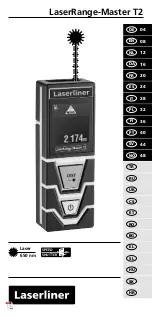
6
Range push-button
for selection of the measuring range. The selected field
measurement range is indicated by luminous diodes.
7
Table
of the field measurement ranges and the corresponding
voltage measurement ranges when the voltage
measurement attachment is set on.
8
Measuring head
Gold-plated measuring system (
d
≈
45 mm), consisting
of a measuring electrode with 6 equal sectors,
arranged symmetrically, a complementary auxiliary
electrode for zero adjustment and a chopper wheel with
6 vanes of appropriate shape.
The protective cap
8.1
serves to protect the sensitive
measuring system when the instrument is not in use; it
can also be used to screen the measuring head during
electrical zero adjustment.
9
Tapped holes
for screwing on the voltage adapter
10
which belongs
to the instrument, and the capacitor plate 11500.01 for
field measurements in the plate capacitor.
10 Voltage adapter
for the wattless, static measurement, of DC voltages
(
R
i
≈
10
16
Ω
). The measuring ranges are selected by
key
6
.
The gold-plated voltage adapter contains a capacitor
plate matched in diameter to the measuring system
of very high insulation resistance, mounted in a metal
screen. The voltage adapter is fixed by bolts
10.1
into
the holes
9
of the EFM, so that a defined spacing is
obtained between the capacitor plate and the
measuring electrode. For measurement reasons, each
EFM has its own specific voltage adapter which is
identified by the same serial number.
11 Input for voltage measurement
Two 4 mm sockets (instrument terminals) for
application of the voltage to be measured.
Socket
11.1
is connected to the capacitor plate of the
voltage adapter, socket
11.2
is connected to the metal
screen and thus to the housing earth.
3
FUNCTIONAL ELEMENTS
The instruments has the following controls and functional
elements (Fig. 3):
1
Housing
Metal housing (70mm x 70mm x 150mm) with
detachable stem (
d
= 10 mm,
l
= 145 mm). A transverse
hole (
d
= 4 mm) in the stem serves for earthing the
housing.
2
knob "
←
0
→
"
for electric zero setting
3
Output
"± 10 V" (
R
a
≥
10 k
Ω
)
pair of 4 mm sockets to connect any voltmeter with 10
V- measurement range. It is advantageous if the zero
is in the centre of the scale, in order to indicate the
direction of the field (e. g. Analogue-Demo Multimeter
ADM 2, 13820.00). The minus output socket is
connected to the housing.
4
9 pole sub-D socket
to connect the serial interface of a computer over a
supplied cable.
5
Sockets 14...18 V
Two 4mm sockets for application of the operating
voltage to the circuit and motor electronics of the EFM.
A smoothed floating DC supply between 14 and 18 V is
necessary.
11500.10
2
Fig. 2: Calibrating set-up for the electric field meter (the illustrated unit is the
older model 11500.00).
Fig. 3: Function and operating elements
7
6
5
4
3
2
1






















